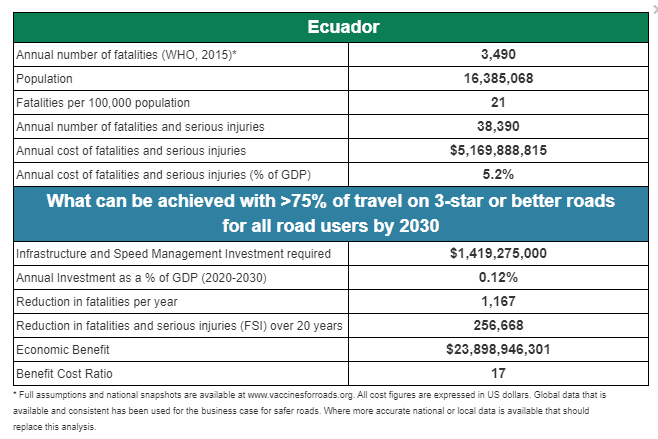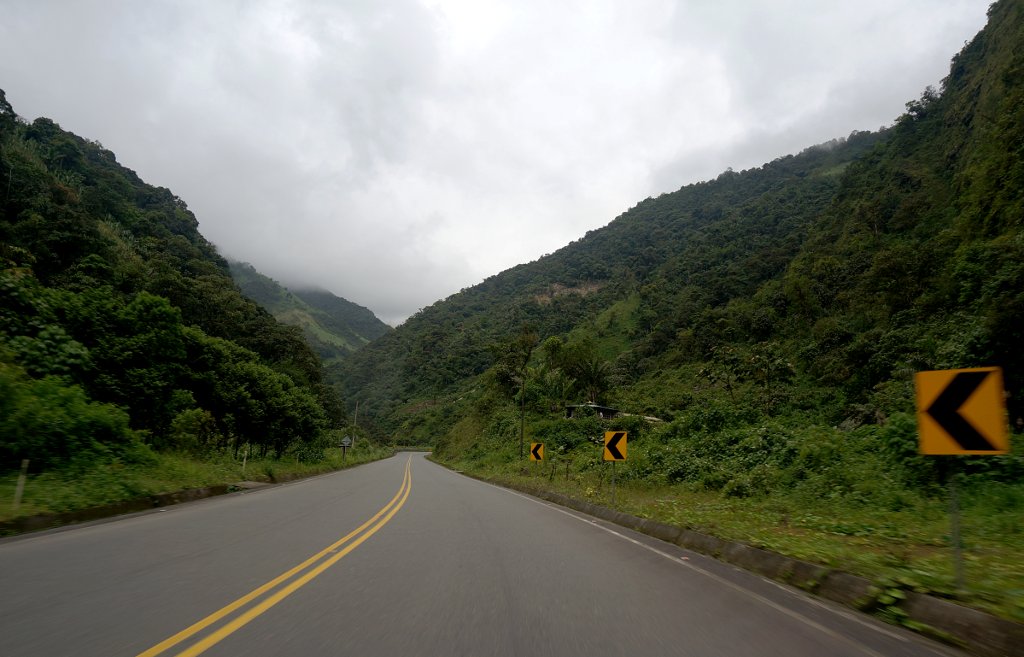The project will assess 430km of the El Carmen- Manta and Rio Bamba-Azoguez’s corridors according to the iRAP Methodology, and build local capacity within the road agencies, local consultants and suppliers through technical support, training and accreditation.
An IDB supplier has completed the coding and survey, whilst iRAP will undertake the analysis, reporting and online training provision to Bank and Ministry staff.
Results may inform a future assessment of Ecuador’s national road network.
According to the National Transit Agency (ANT) Ecuador suffered 2,894 road traffic fatalities in 2019 and an additional 20,000 serious injuries. Experience in Ecuador has shown that while the state road network is in good condition with respect to pavement quality, improvements are required to achieve the 3-star or better standard.
In recent years, the Ministry of Transport and Public Works has considered various plans, programmes and strategies to improve road safety in the five pillars of action.
In August 2017, the National Pact for Road Safety was signed, bringing together the commitment of public, private, administrative, judicial, control and civil society organizations to promote, as a State policy, a culture of road safety through the application of preventive measures and immediate action to reduce death and injury due to road crashes on Ecuador’s roads.
In 2020, iRAP and the IDB signed a 5-year agreement to work together to deliver a measurable reduction in road trauma in the Latin America and Caribbean region and contribute to the United Nations Sustainable Development Goals (SDGs) and UN Global Road Safety Performance Targets.
Achieving greater than 75 per cent of travel on 3-star or better roads in Ecuador by 2030, stands to save over 256,600 fatalities and serious injuries with a benefit of $17 for every $1 spent, according to iRAP’s Business Case for Safer Roads.



















